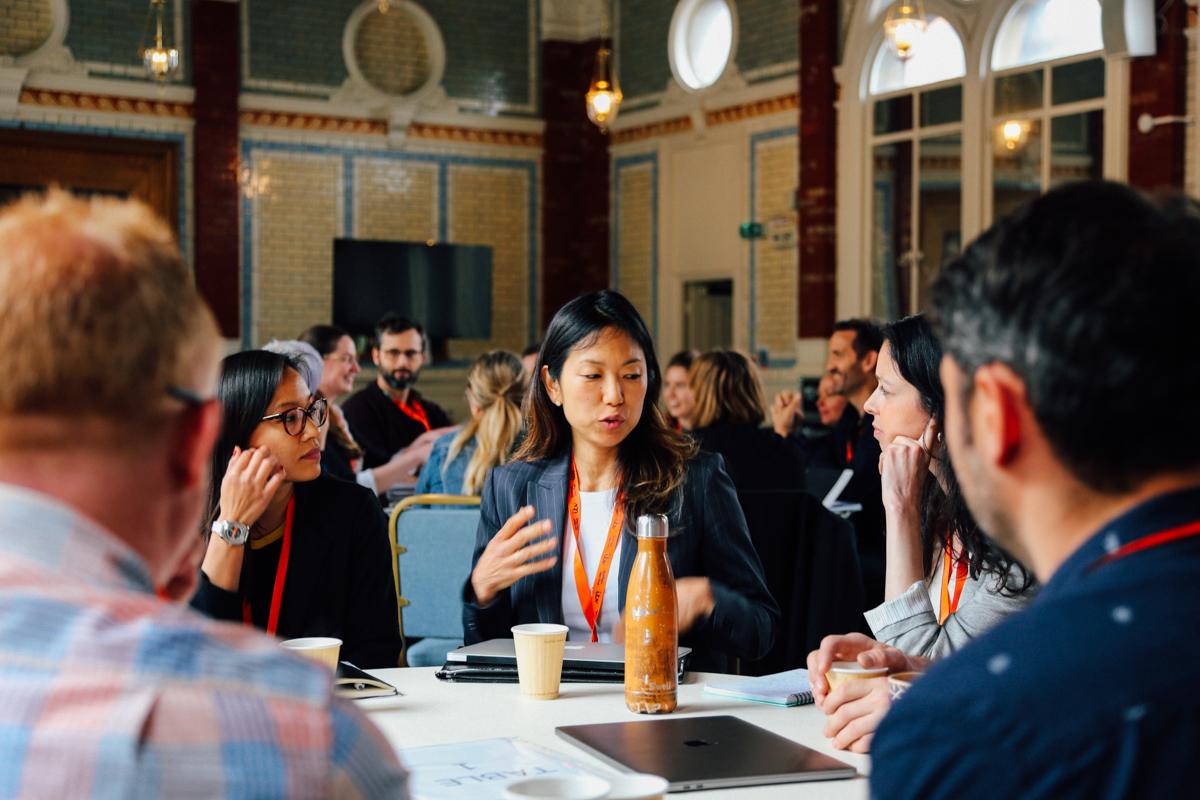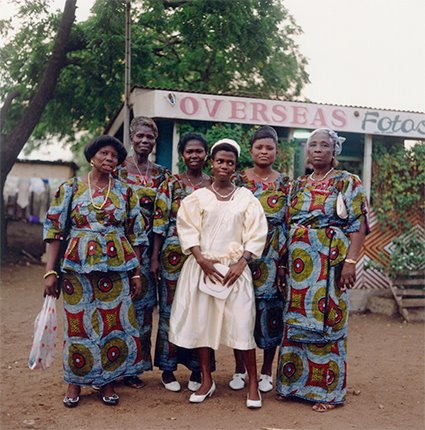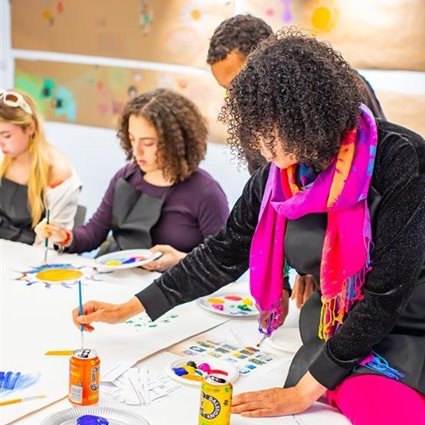- ARTiculate
- Posts
- Document Today, Inspire Tomorrow
Document Today, Inspire Tomorrow
Your Legacy in the Making

CONTENTS
First things first
ARTiculate is something I create independently, and in which I dedicate a part of my Sundays to every week. It’s free for anyone to read, and I intend to keep it that way for as long as I can.
If you are ever moved to support this work, you can make a one-time or monthly donation through Ko-fi or PayPal for the price of a coffee. Every bit of support goes directly toward the time, energy, and resources it takes to keep this newsletter going. It helps me show up more fully for you.
Since December, the kindness of readers has added up to the equivalent of 37 cups of coffee. I’m genuinely so grateful to everyone who has contributed — your support makes a real difference. Thank you 🙏🏾
Document Today, Inspire Tomorrow: Your Legacy in The Making
Over the weekend, I watched Never Too Much, a documentary about the life and career of Luther Vandross. I grew up listening to Luther — his music was a staple in the household throughout my childhood — but there was so much I learnt from the doc that I hadn’t known about before. It covered his early singing work on Sesame Street as part of a group, his time writing and singing jingles for commercials (which is where he developed his trademark adlib), and his time as a backing singer for artists like Roberta Flack and David Bowie before he launched his own solo music career. One part that really stuck with me was the footage of him in the recording studio with Bowie. It got me thinking about something I can’t seem to escape, even on a casual evening out: the importance of documentation and archiving.
Those studio moments between Bowie, Luther and the backing singers weren’t just cool to watch — they were a big part of Luther’s story. The clips showed how Bowie recognised something special in Luther and gave him opportunities that helped launch his solo career. It's one thing to tell a story, but when you have the actual footage, when you can see the chemistry and the early sparks of greatness, it hits differently. The behind-the-scenes clips of concert rehearsals, studio sessions, and the photos with his friends and bandmates — all of it helped piece together the story of Luther’s artistry. Not just in history books, but in a way that feels real.
What really drew me in was seeing his journey from backing singer to one of the best solo entertainers of a generation. It wasn't just about the music either. It was about all the steps, big and small, that add up over time. It made me think about the journeys all creatives are on — that every little step we take is part of something bigger we're building. A young artist watching this could easily see themselves in those early days of Luther’s career, and be validated that they're exactly where they need to be — and that with time and perseverance, their moment will come.

Luther Vandross recording backing vocals for David Bowie
When we document our work and the stories behind it, we're also (even without realising) documenting our legacy. What you’re creating right now is a piece of art history in progress. Being intentional about documenting and sharing your work matters. You never know who might need to see it one day — a researcher, a student, an artist — or simply someone who could find inspiration in your journey. The reason we know as much as we do about artists from the past is because someone made sure to document it. And its worth pointing out that there is a lot of important art history that is lacking because of no documentation, or documentation sadly being destroyed or lost. Documentation dosen’t only just make the books, but as in Luther’s case, documentaries, and also exhibitions. We can't afford to lose the stories, processes and recipes of what’s happening now — future generations will benefit from them, just as we benefit from what was documented yesterday. Throughout the film I thought a bit about the means of documenting through photographs and video, but without the wider and more accessible platforms like social media that we have today. For the many issues that there are with social media, one thing we have today is the freedom and democratisation of how our work is shared — and without having to wait for a major distributor to decide whether it is good enough or not for the public to see.
Last week, I introduced the topic of self-promotion, and you may be asking—how is documenting my work related to that? In short, documentation is foundational. By consistently documenting your work, you create an accessible record that can be readily shared with key stakeholders, whether that's curators, collectors, historians, publishers if you are a writer, A&R representatives if you are a musician, and more. Platforms like social media offer an effective means of archiving and presenting your work to a wider audience. As artist mentor Ceri Hand aptly stated on an Instagram post last week about promoting work using social media, "Out of sight = out of mind." Those whom you want to see you work are not psychic, and without access to evidence of your work, how can they know about it? Without proper documentation, your work risks being overlooked—especially when you're actively seeking opportunities for presenting or selling.
In last week's newsletter, I also shared some tips to help move past the cringe and get more comfortable promoting your work. One of those tips was: document as you go. And like I said then — I get it, you just want to create. But honestly, sharing and documenting are just as important, especially if you want your work — and the story behind it to be seen and understood both casually and critically.
Your future self will definitely thank you for it. Here are some additional pointers:
1. Treat your work like it matters — because it does
Even if it feels like nobody’s paying attention right now, document and share as if it will matter to someone later on. Because chances are, it will. Your journey, your process, your wins, your lessons — they’re all part of something much bigger. They deserve to be seen and remembered.
2. Build your own archive
Think of it like building your own little museum. Save your drafts, your behind-the-scenes photos, your scribbled notes, your voice memos — even screenshots of interesting conversations or feedback you’ve had. You don’t have to post everything publicly. This is more about having a space, just for you, where all of it lives. One day, you’ll look back through it and realise just how far you’ve come.
3. Remember: cringe is temporary, history is forever
What sticks around is the incredible record of work that you’re building — something future you (and future generations) will be so grateful to have. Also, don’t worry about the thoughts of those who were never going to support your art in the first place. Focus on getting the attention of those who will!
A task for you to help with your documentation journey
Pick one moment from your creative process this week, big or small, and document it.
Take a photo, record a quick video, or write a short caption or voice note. Share it on your social media if you feel comfortable, or simply save it somewhere for yourself, in a labelled folder on your device of choice. The point is to start. Tiny steps now will build something powerful over time.
Let me know how you get on
Incase you missed it - Apply for up to £12,000 for your creative practice
I sent out a bonus newsletter last week with information about Arts Council England’s latest round of Developing Your Creative Practice (DYCP) funding, which you can apply for until 22nd May.
This Thursday, I’ll be sending out another bonus post, sharing my own experience with DYCP — including how much funding I received and how I spent the money. Then, next week, I’ll send a further bonus email covering what worked well for me and what I would do differently if I were to receive the funding again today.
The aim of these posts is to support those who are planning to apply in the current round.
I also have a limited number of slots available for feedback on application drafts, as well as 30-minute or 1-hour phone or video calls to talk through your idea and help shape your approach. These sessions are available on a 'pay what you can' donation basis.
If you would like to enquire about a session, you can drop me an email.
Opportunity listings
A list of open call, residency, fellowship and funding opportunities for artists.
A mix of UK-based and international.
Some opportunity deadlines are in a few days, some next week, some next month — so do not delay in clicking on the ones that catch your eye to get full details.
I try and refrain from sharing opportunities that require an application fee.
Am I chatting rubbish, or do you actually find this newsletter useful?
This newsletter has existed for just over 5 months now and I’d really love to hear what you think so far. Your feedback, and me getting to know a little bit about the demographics of who is reading this newsletter will help me figure out what’s working, what could do with a tweak, and what you’d like to see more of.
Please take a few minutes to complete the feedback survey here. You would be answering anonymously.
Closing remarks
Start documenting, start sharing, and start building that archive. It doesn’t have to be polished — it just has to be real. Your creative journey is happening right now, and one day, you’ll be so glad you captured it. Someone else might find inspiration in it too.
If you have made it this far, thank you for reading. If you know anyone who you think would benefit form these newsletters, forward this to them, and encourage them to subscribe.







Reply